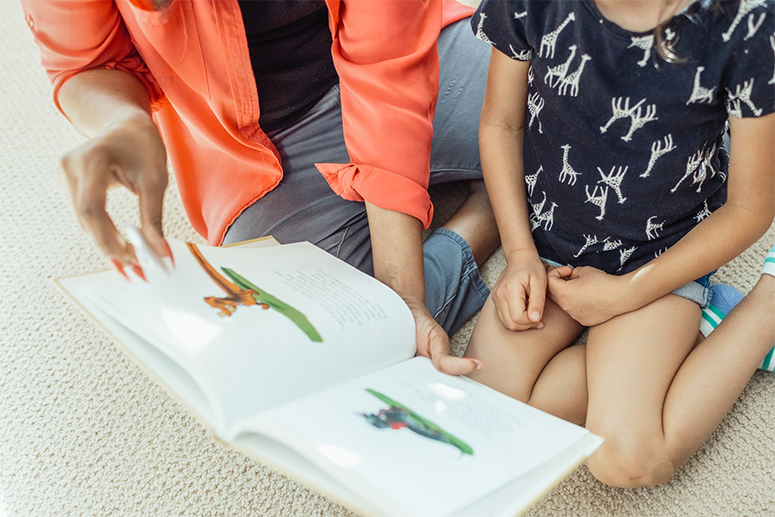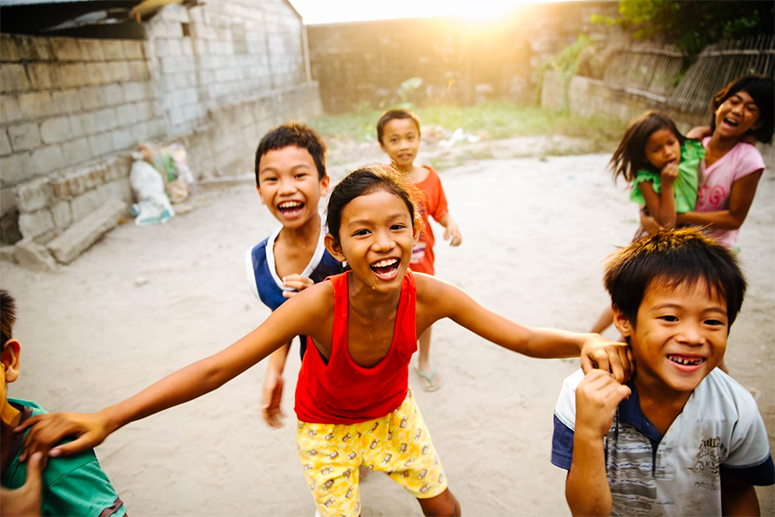Our good old childhood days
As we celebrate “World Children Day” on Nov. 26, it occupies my thoughts that every child has the right to be born; to have a name; a caring family that provides shelter, food, good health, protection from accidents, abuses and violence; a school that develops skills and talents, teach good values and character; and a progressive society in which to live.
As today’s children fulfill their appetite for consumerism and materialism through media and technology, I look back and relive our daily patterns of domesticity and simplicity from long ago.
Though I regret losing my old photo albums, full of joyous moments of our childhood, I can restore those images as clear as day by walking down memory lane. It was our happiest time, the most enjoyable place I’ve ever been, a time when we frolicked in clean-swept playgrounds, near our unfenced neighborhood.
There was little electric lighting then, so instead the moon lit up our neighborhood at night; it was a grand time to celebrate, play patintero and Hide-and-Seek among the moonbeams.
The giant stone at the entrance of the dark Daang Malaki provided a backdrop for our late-night, almost-never-scary antics, because we were the kind of kids drawn more to the funny than the eerie, like turning an ear to the Ben David soap Gabi ng Lagim on DZXL radio on Friday nights.

Daang Malaki was a passageway for the bamboo carts pulled by carabao, the farmers’ backbone in hauling coconut fruits and vegetables from the highlands to the market.
At home, I felt the tender hands and hearts of my parents lulling me to sleep, aside from dishing out bread-and-butter generously for our family, neighbors and visitors, whom they would welcome to sit down and feed on our table.
Before bedtime, our Inay and Tatay would spin fairy tales and war stories, while our witty Lola and Lolo nurtured us on the finer points of praying and saying grace. As we wondered how they raised us all well when they had attended school and gotten married so early, the best-known reason they gave was this: life rolled free and easy back then.
And they were right.

We look back and savor those weekends when we trekked down to the clearer, cleaner river with our elder sisters to wash clothes; when each morning, our big brothers blended their chore with their exercise, fetching and carrying water over their shoulders from a distant poso (artesian well) for drinking stored in tapayan (clay-jar water-cooler), and for cooking and bathing stored in tunel (big drums); when, on sunny Saturdays, we gathered firewood from the fields for cooking on abuhan (hearthstone) since gas stoves weren’t common in the kitchen yet; when all year round, our dearly adored farmers produced vegetable and fruit bounties, a handful of which they spared for us; when, from May to September, our barrio folks harvested palay (un-milled rice) for a whole-year stock of rice. They worked hard, but stayed hale and hearty.
In those good old days, one kilo of rice cost P2; a 10-kilometer bus or jeepney ride was 10 cents; a piece of candy or bread was one centavo; monthly tuition to a private high school was P10 to P15; and the currency exchange rate was P2 to a US dollar. Such were the many light-on-the-pocket privileges during Diosdado Macapagal’s four-year presidency.
At home, I felt the tender hands and hearts of my parents lulling me to sleep, aside from dishing out bread-and-butter generously for our family, neighbors and visitors, whom they would welcome to sit down and feed on our table.
Though we never experienced the most attractive diversions kids have today — playing with gadgets and cellphones, flipping through colored books, watching flatscreen TVs, surfing the Internet — we were never short on fun and frolics, playing our nearly-forgotten, unstructured, but good-natured homegrown games.
For us young boys, sipa, tumbang preso, patintero, piko, trumpo-yoyo-dama challenge, andfake gunfights were quite popular; while our girl playmates preferred luksong tinik, luksonglubid, bahay-bahayan, bato-batopick, jackstone challenge, and the patronizing “imaginary school” with a role-playing, stick-threatening, calling-the-shots teacher trying to control the noisy-and-raucous “pupils,” who would disappear in an instant.

At home, I felt the tender hands and hearts of my parents lulling me to sleep, aside from dishing out bread-and-butter generously for our family, neighbors, and visitors, whom they would welcome to sit down and feed on our table.
During summer, Inay took me to Sampaloc Lake at the crack of dawn, and to Auntie Oring’s home on vacation nearby Laguna de Bay—where an early-morning breeze and breath of fresh air wafted over my weak lungs to ease my grunts and struggles during asthma spells.
Occasionally, Inay would also commission my teenage relatives’ ates Omeng and Juanita, who hooked me onto Amalia Fuentes-Romeo Vasquez fandom, as my alternate-chaperons in watching Amalia-Romeo movies when I was five or six years old.
From primary to college at UST, to the workplace, I never lost sight of my parents’ affable non-threatening advice: for them, to see me succeed wasn’t just a dream.
I’ve shared with my parents the confidences that modesty allowed, every time Tatay and Inay patted me on the back, anytime I’ve added a slice to their dream plate.
Shakespeare’s line “The old bees die, the young possess their hive” captures my dream for today’s children—to hand them down the selfsame rights we then possessed — put in place in hopeful anticipation, by a God-fearing, heart-and-soul-serving leader.


